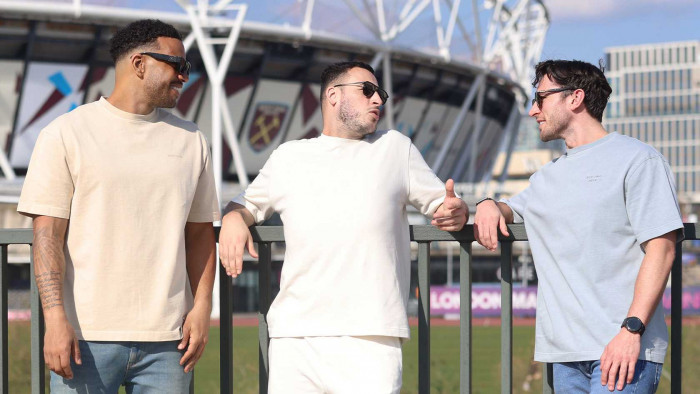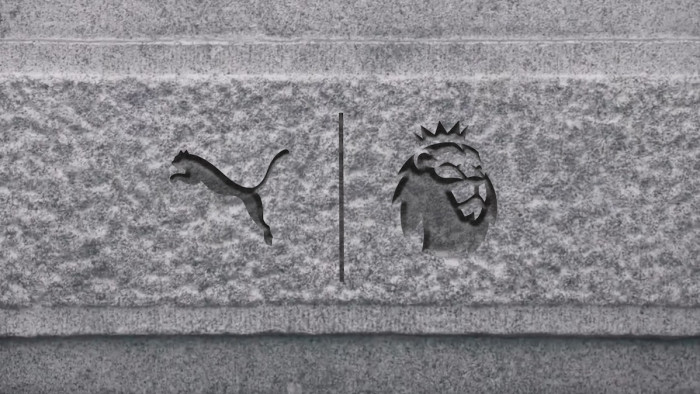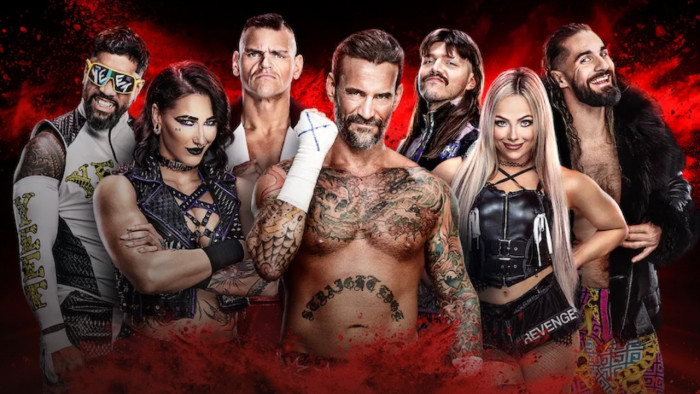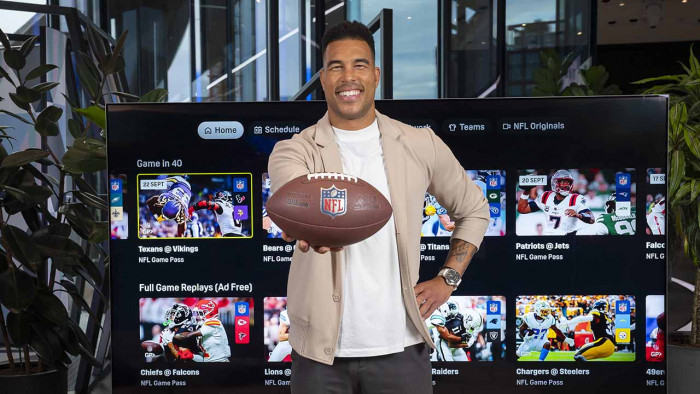The true story of how I am responsible for Manchester City winning the league
History could have been very different


Growing up, I was obsessed with Manchester. Looking back, it was inevitable that it would be this way; that there would be no escape from the lure of this exotic city, 216 miles away from my home town of Upminster. Why? Because of football, and music.
The first year that I suddenly became aware of the charms of the beautiful game was the 1989/90 season, which was a gift, given that it was a World Cup year; and not just any World Cup, but the one which had everything: the romance of Italy; Gazza’s tears; Roger Milla’s wiggle and the pain of a penalty shoot-out defeat when victory looked certain.
But that year, in domestic terms, was the turning point for Alex Ferguson’s Manchester United. They would finish in 13th place in the league in Ferguson’s fourth season in charge - their lowest position since their relegation from Division 1 fifteen years previously - and, following a run of seven games without a win, they were drawn away to Nottingham Forest in the third round of the FA Cup. Lose, and Fergie would surely be fired.

Mark Robins saves Fergie’s bacon against Nottingham Forest
They won, via a solitary goal and went on to lift the trophy after an enthralling tournament (which saw the two greatest semi-finals in the history of the competition, a 4-3 win and a 3-3 draw on a sun-kissed Saturday afternoon in April, which saw me and my friends glued to the TV).
United instantly became my team. As I followed their glorious cup run, they were, it seemed, plucky underdogs, and when I started to read into their history, I couldn’t help but be swept up by the romance of the club: the Busby Babes; Charlton, Best and Law; the tragedy of the Munich Air Disaster and the genius of Duncan Edwards. They also had Mark Hughes, owner of the best volley in the game, captain marvel Bryan Robson and the twin colossi at the back of Bruce and Pallister. How was I to know that they would end up dominating the league for the next 20 years?
Of course, as United grew stronger, winning their first title for 26 years in 1993, their fierce rivals Manchester City grew weaker, with league placings of 9th, 16th and 17th in the years from 1993 onwards before they finally tumbled out of the top flight in 1996, with United having racked up four Premier League titles during this spell.
Perhaps it was a consequence of not actually being from the city (just a few miles away from being a textbook ‘Surrey Red’), but I’d never taken up the traditional hatred of City. They, too, seemed to have their own, glorious history, awash with stylish players like Franny Lee, Mike Summerbee and Colin Bell and, in later years, the cult hero that was Georgi Kinkladze. I’d also become aware, as Oasis started to dominate the music scene, that City were the club you supported if you were from the centre of Manchester; they were, in many ways, the people’s team there. It was clear that their fans were a truly loyal bunch, and it must have been a tough time to support them - especially when, after just two seasons in the second tier (then called Division 1), they were relegated again in 1998, down to the third tier for the first time in their history. With their cross-city rivals standing tall, their humiliation was complete.

The Georgian wizard Georgi Kinkladze in action for City
By this time, I had discovered the joys of going to watch actual, live football and found my ‘real’ team of Leyton Orient, who would go on to have substantially less success than United in the following two decades, and my interest in Fergie’s boys began to wane. My interest in the city of Manchester, however, very much did not, with my musical awakening leading me to discover the treasure trove of musical history present: the Happy Mondays; Joy Division; New Order; The Stone Roses; The Smiths; The Buzzcocks… the list was seemingly endless.
Thus, when my sister began her course Manchester University in September 1998, I could not wait to visit her and take in the culture.
I would visit the site of the Hacienda (I had cruelly missed out on actually going to it), I would go to Affleck’s Palace, I would spend as much money as I could in Piccadilly Records - and, most importantly, I would visit Maine Road.
My sister, who had absolutely no interest in football whatsoever, was despatched to buy cheap tickets from the student union and thus, on a freezing October morning, I found myself walking through Moss Side towards Maine Road: one of the most legendary cathedrals of football that had ever existed.
It was a cathedral, but there was very little worshipping going on. Because, on the very day that I went to watch City play Colchester United, they were at the lowest ebb that they’d ever been in their history.
Read more: The 23 greatest extinct UK football grounds ever

Despite being expected to walk the division, they’d endured a tough start to life in Division 2 (now League 1) under Joe Royle. After a comfortable opening-day victory over Blackpool, they were swiftly brought back down to earth by a 3-0 reverse against Fulham, before a nine game unbeaten run gave way to three defeats in four games prior to my game, including the indignity of losses to lowly Lincoln and, worst of all, north west rivals Preston North End, leaving them in tenth position.
While I was bursting with excitement, the atmosphere amongst the City faithful was markedly different. 24,820 people had turned up for the game, and it is safe to say that not one of them had come expecting to enjoy it. Six years earlier, City had been in the top flight, and Colchester in the Conference. But the game of football respects nothing other than the performances of 22 players on the pitch, and here they were, historical titans of the game taking on minnows, both there on merit.
It was, to be honest, hilarious. No one moans and grumbles in quite such a poetic way as a Mancunian, and the air of comedic despondency in the air before a ball had been kicked was quite something to behold.

City’s long-suffering faithful
It was also bloody freezing, and, at half time, with the game poised at 0-0, I vividly remember constant adverts for Bovril, something which seemed unspeakably exotic to my youthful, southern ways. Everybody moaned. Everybody declared that City were going to ‘bloody lose again’.
Four minutes into the second half - suddenly - a penalty. Michael Branch is felled (like a tree) in the area and City have the chance to take the lead.
As the referee points to the spot, without missing a beat, a nearby voice calmly declares: “well it makes no difference does it, we’ll only bloody miss it”.
Despite the protestations of doom, the penalty is despatched by Kevin Horlock. Four minutes later, Andy Morrison, on his debut, powers home a header to double the lead.
A calm procession to victory as the home side see out the game comfortably? That’s not the City way.
Five minutes after Morrison’s strike, up pops former Ipswich and Spurs wonderkid Jason Dozzell to pull one back for Colchester. The visiting support goes absolutely mental; not only are they watching their team play at Maine Road - something they probably never thought they’d ever see - but they’ve scored, and they’re back in the game.
Naturally, the sunshine boys around us are plunged back into doom and gloom. “That’s it, we’re buggered” and “Here we go again” being the more printable comments. Nonetheless, City manage to cling on, with me and my sis cheering on the boys in blue, and victory is achieved.
Morrison later described in his book The Good, The Mad and the Ugly, just how negative the atmosphere at city had - understandably, given their years of struggle - become.
“We piled into a bus and went to a local school to do our warm up. This was Willie’s [Donachie] idea and it was designed to keep the younger players away from the negative comments and pressure for as long as possible. He wanted them to enjoy walking down the tunnel and have the adrenalin pumping rather than be apprehensive at the prospect of going on to the pitch.”
“In my first tackle I sent a Colchester forward into the air with a solid challenge and the whole stadium got a lift. I had the impression it had been a while since they had seen a full blooded tackle, but it was exactly what they wanted to see… I thumped a header past the Colchester keeper and ran off to celebrate with the City fans. Other than receiving three stitches in a shin wound, I can’t recall much more but I had got what proved to be the winning goal in a 2-1 victory. What a start!”
What a start indeed. And it was a match that City would never look back from, becoming a turning point in City’s entire history. Their pre-match placing of 10th would be the lowest that the club would ever occupy.
They would lose only four more games throughout the rest of the season, eventually finishing in third spot and entering the play-offs, missing out on automatic promotion by dint of their poor start.

The final Division 2 table in 1998/99
Of course, this is not the end of the story, with City’s poor supporters being put through the ringer once again in a finale that no one could have scripted.
After seeing off local rivals Wigan Athletic in the play-off semis, they faced Gillingham in the play-off final. The gulf between the teams was stark - this was Gillingham’s first-ever appearance at Wembley, while City had played there eleven times before in FA or League Cup finals.
But, again, history and tradition counted for nothing as the game came to life after 81 uneventful minutes.
Carl Asaba put Gillingham ahead, before Robert Taylor added a second five minutes later. Surely, that was that.
And then.
The unthinkable happened: that man Kevin Horlock pulled one back in the 90th minute, before Paul Dickov equalised in the fifth minute of injury time, sparking scenes of pure jubilation.
City fans, who’d left the stadium early to avoid the harrowing spectacle of seeing their opponents celebrate victory, heard one roar and stopped in their tracks. A second roar followed and they were running back to be let in.
Following extra-time City triumphed in the penalty shoot-out.

The momentum followed City into the next season, achieving back-to-back promotions, returning to the top flight, where they belonged, in 2000.
Of course, this being City, they got themselves relegated again, before bouncing straight back up the year after.
Six years of moderate Premier League success followed before, as we all know, they were purchased in 2008 by the Abu Dhabi United Group for £210 million.
It was the boost they needed; Aguerrroooooo and their first title in 44 years followed in 2012, before Pep Guardiola arrived in 2016 to take the club to a higher level, culminating in this season’s cakewalk to the title.
But who knows how things could have turned out had I not gone to that game in 1998? Perhaps my shouts were the ones that urged the players to hang on in the final half hour of that 2-1 win. If they’d not won, the despair would have been all-consuming. Perhaps they’d have stayed in the third tier, reducing their budget, adapting to life away from the big time, losing their glamour. Another ‘sleeping giant’ destined to bob about in the lower divisions for the rest of their existence. Certainly, if you’d told any City fans there that day what their club would be like 20 years later, they’d have all burst out laughing.
On such pivotal moments do the history of football hinge, and it’s a strange quirk that I happened to be there that day.
Surely, it was no coincidence.
So City fans, when you take home your third Premier League title - be it this weekend or the next - raise a glass to Morrison and Horlock (and to little old me). This southern Blue made you.
(Images: Getty)
Latest
Related Reviews and Shortlists









